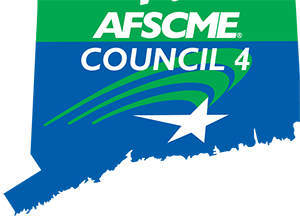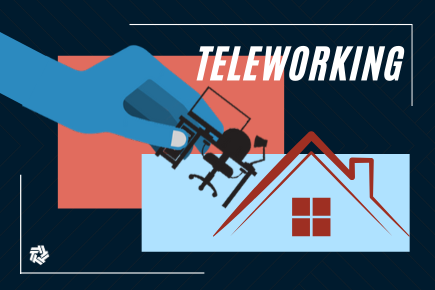The State Employee Bargaining Agent Coalition (SEBAC) and the Lamont administration officially reached a stipulated agreement regarding telework.
The stipulated agreement means the parties have settled the grievance, prohibited practice charge, and companion injunction action that SEBAC unions, including Council 4, filed against the administration for violating the transition telework agreement reached June 17, 2021.
- Click here to read the stipulated agreement.
- Click here for the Q&A (also shared below).
- Click here for the SEBAC web post.
- Click here to read the Hartford Courant story.
Please check with your Local Union leadership if you have questions about the stipulated agreement and telework. If you are refused either return to pre-July 1 schedule, or if you are refused a covid-fragile accommodation for either yourself or a family member, please make your local union leadership aware immediately. It is likely many issues can be resolved quickly and informally.
Thank you for being union strong!
A brief Q&A on the 60-day reset period is available below. (Another Q&A on the post-reset period will be forthcoming.)
Question | Answer | |
1. | When does the 60-day period start and end? | It starts August 3, 2021, and ends on October 2nd. |
2. | Do I need to apply to return to my pre-July 1 Schedule | No. You have the choice to remain on your current schedule, or return to your pre-July 1 schedule. If you make the return to pre-July 1 choice, you just need to let your management know by emailing whoever you would usually deal with about your schedule. |
3. | Does this reset period apply to all executive branch bargaining-unit employees who were teleworking before July 1, 2021? | The only two exceptions are any hazardous duty employees who were teleworking during the pandemic, and employees whose regular duties were not conducive to teleworking, were given an alternate assignment prior to July 1, and now have returned to their pre-COVID assignment. There may, however, be a small group of workers who will not be able to telework as much as they did prior to July 1. If operations that were suspended prior to July 1 have reopened at an employee’s worksite or in the field and those operations can’t be performed by teleworking at their pre-July 1 schedule, the employee will only be approved for the amount of telework, if any, that can be performed from the employee’s home. |
4. | What happens if my supervisor claims an exception or limitation applies and I disagree? | Please let your union steward or delegate know immediately and ask that it immediately be relayed to union staff or leadership. Your union will work through the Coalition and the Office of Labor Relations in an effort to produce a rapid informal resolution. The SEBAC grievance procedure is available if it can’t be resolved informally. |
5. | What happens if I or a family member is COVID-Fragile During the Reset Period | For the 60 days, since you can return to your pre-July 1 schedule, you can use that choice to work the same schedule you were working pre-July 1. After the reset period, a provision in the new agreement extends to the COVID-fragile employees (due to their own or a family member’s serious medical condition) telework of up to 100% through December 31, 2021. |
6. | Does this apply to the Judicial Branch or Higher Ed Units? | No, the settlement applies only to the Executive Branch bargaining units that bargain directly with the Administration through the Office of Labor Relations. Telework issues involving other bargaining units are being addressed directly with those employers. |

